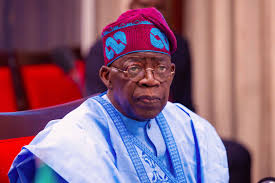By David Sani
The fear that several persons and organisations had repeatedly expressed over the growing extremism of the Shiite sect in the country was finally proven on Wednesday October 12, 2016 when sectarian violence left as many as dozen persons dead across several cities in the north. Incidents involving an outlawed group of the sect, the Islamic Movement in Nigeria (IMN) stretched from Plateau to Sokoto state with Kaduna, Katsina and Kano recording major confrontations.
Concerns about IMN’s propensity for mindless violence first heightened almost a year ago when the now proscribed group reportedly made an attempt on the life of the Chief of Army Staff (COAS), LT. Gen. TY Buratai. Naturally, the widespread condemnation of the military response to that threat was in favour of IMN. The lone voices that tried pricking the national conscience to take a holistic view of the sect were mostly shouted down.
The report from the public hearing of the Kaduna State Judicial Commission of Inquiry into the incident and later a report from the National Human Rights Commission (NHRC) found that IMN was not what it seemed. Both reports stopped short of naming it as a terror organization – this reluctance to appropriately designate the Shiite radical group is in keeping with the culture of political correctness that allowed Boko Haram to mature into a monster before our very eyes.
Albeit almost belately, Kaduna State Governor, Mallam Nasir el-Rufai, finally marshalled the political will to rely on existing laws and proscribed the IMN which happened to be operating illegally as it was not duly registered. It was also found, as found in the two reports mentioned above, to be radical, confrontational, abridging others’ freedom of movement, substantially militarized as well as recruiting and radicalizing youths.
Unfortunately, years of infiltrating the system and a deep pocket funded by the Islamic Republic of Iran meant that IMN has been able to mount a campaign of calumny against the military services and the security operatives that should have enforced the ban by Kaduna state government.
The resources at its disposal means that all the institutions it perceived as threat in its ascendancy to a global terror brand are constantly blackmailed by international NGOs that pretend to uphold human rights.
Citizens, many of whom had endured years of growing IMN oppression, were definitely at their wits’ end. The proscription order was openly flouted by the Shiite sect members who had prior to the order promised to shut down the country with protest for the release of their detained leader, Sheikh Ibraheem Al-Zakyzaky. For a group whose so called peaceful processions heralded hell for other citizens no one was willing to have a taste of their violent protests. The fear, justified or not, was that any protests by a group that has been banned will leave behind too many casualties from adherents of other faiths and sects.
There was no justification for what happened on that violent Wednesday in Kaduna, Funtua, Kano and Jos but it was a disaster that became inevitable. It was the consequence of an IMN that has placed itself above the law enforcement agents while totally forgetting that the various security apparatus derive their powers from the people as enshrined in the constitution.
When the sect members deluded themselves into thinking that they are above state institutions the people that empowered these organs simply took the power back and unleashed their fury on what they now know to be an illegal assembly. This is totally wrong. We should never have gotten to this stage.
We must thus retrace our steps so that each person begin to recognize their bounds as much as they insist on their rights. The right to choice of religion must be tempered by the knowledge that Nigeria is home to more than just Christians and Muslims. When a faithful of either dominant religions wants to act they must acknowledge that others have the right to worship the arrays of indigenous faiths including atheists and agnostics whose freedom must also not be trampled. For each of the belief systems there are variations sometimes expressed as sects such that even atheism has degrees.
There will be investigations and probes no doubt but even before their reports come out, which will take time, we must again allow the security and military services begin to fully exercise their statutory roles without let to the extent that they adhere to rules of engagement.
The culture of kowtowing to foreign conventions that give more rights to religious and sectarian fanatics while limiting the ability of the state to respond to terrorists’ threats must stop forthwith. Nigeria remains a secular state with a secular constitution and the institutions that exist to safeguard this constitution must be allowed to do just that. We must never again allow a repeat of the situation where one sect becomes so powerful to the point that other Nigerians are forced to resort to self help.
A first step in this direction will include a detailed investigation by security agencies into reports that IMN members had fake military and police uniforms with assorted weapons in their possession during the faceoff. The issue of militarization by the Shiite sect is one that must be treated urgently and should not be left till the investigations that would be launched take place.
IMN must see the violent response to its threat of violence as a final denouncement by the population. The unified response to its misadvised protests under the cover of the annual Ashura procession is a warning that every other person has decided that enough of its excesses.
Sani writes from Abuja



